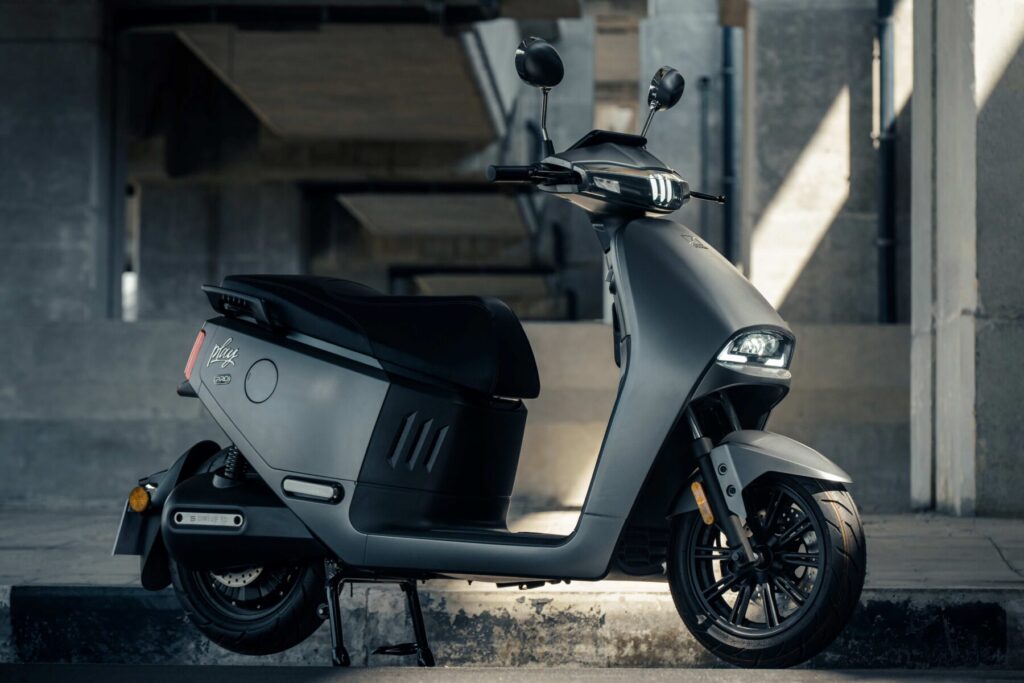From the hallways of SISB to the forefront of Thailand’s electric vehicle revolution, Kantinan (Ben) Tunveenukoon is proving that innovation, when paired with purpose, can create lasting impact. As the co-founder of Sleek EV, a company that is redefining urban mobility through affordable, design-led electric motorcycles, Ben has earned a well-deserved spot on the prestigious Forbes 30 Under 30 Asia list in the Industry, Manufacturing & Energy category.
Having raised nearly $5 million in total funding, Ben’s journey is a powerful testament to bold ideas, unwavering resilience, and a clear vision for a greener future. So today, we’re thrilled to share some of the insights and stories he generously shared with us, hoping they will inspire the next generation of SISB Scholars, Leaders, and Global Citizens.
Q: “Congratulations on making it to Forbes 30 Under 30 Asia! What was your reaction
when you first found out, and what does this recognition mean to you?”
A: “I was genuinely surprised and thought they initially emailed the wrong person to be very frank.
I never set out to collect awards; I just wanted to solve issues that affect the world but seeing my name on that list was like, okay, maybe we’re onto something here. More than anything, it’s a reminder that what we’re building at SLEEK EV could actually make a dent in the world. And that’s pretty cool.”
Q: “Many young people dream big but hesitate to act. What helped you take that leap of faith to start Sleek EV, and what advice would you give to students who want to pursue ambitious, purpose-driven ideas?“
A: “I’ve always been curious, sometimes annoyingly so. I often question why things are done the way they are and why the status quo often remains unchallenged.
We’ve seen huge changes with the internet, smartphones, drones, and 5G. Yet motorcycles have stayed basically the same for over 30 years.
At some point, I thought: if no one else is fixing it, maybe I should give it a shot. Worst-case scenario, I’d learn a ton.
So this would be my advice: Don’t wait until you have perfect knowledge or perfect timing. Start messy. Iterate fast. Execution matters way more than ideas. You’re never going to feel completely ready—and the worst-case scenario is often the one you’ll face. But that’s okay. Make mistakes, as long as they’re not the kind that will kill you.”
Q: “Can you share one of the biggest challenges you faced in building Sleek EV, and how you overcame it?”
A: “One of the toughest challenges was realizing that building an electric motorcycle isn’t just about the bike itself, it’s about creating an entire ecosystem around it.
At first, I thought we’d just build a better motorcycle, and people would switch. But it quickly became clear that if charging is inconvenient, or if people worry about maintenance, they’re not going to make the leap, no matter how cool or efficient the bike is.
That was overwhelming. It felt like we suddenly had a list of a hundred problems to solve. What I’ve learned is that when it feels like there’s a hundred problems, you have to focus on the few that matter most—the ones that really affect your customer’s biggest pain points. And equally important is knowing what not to do. Cutting things off your list is sometimes just as critical as deciding what to tackle.
As a leader, I had to let go of trying to solve everything myself and trust the team to own different pieces. And as a person, I learned to stay calm in the chaos and keep moving forward, even when it felt like we were in way over our heads.”
Q: “Sustainability is a big part of your mission. What role do you think startups like Sleek EV can play in creating a greener future for Thailand and Southeast Asia?”
A: “Startups can move fast. Big companies may not do the same.
At Sleek EV, we’re trying to make clean mobility not just an eco-friendly badge, but something normal people can afford and actually want to ride.
In Southeast Asia, where motorcycles are pretty much the backbone of daily life, even replacing a fraction of gas bikes with electric ones could massively improve air quality and cut emissions.
But the thing is, the Earth can’t wait. If we don’t go carbon neutral, or at least make huge strides toward zero emissions by 2030, we’re probably doomed. We can’t just sit around waiting for all the giants to decide it’s time to go green.

So, I think startups like ours have a shot at punching way above our weight, and honestly, we kind of have to.”
Q: “Lastly, if you could go back to your SISB days and give one message to your younger self or your classmates, what would you say?“
A: “I’d tell my younger self to focus on building real skills, not just chasing grades. Learn how to solve problems, work with people, and pitch your ideas. That’s what matters in the real world. And one practical tip I would give is to start networking early. The people you meet, even in school, can open doors later in ways you can’t predict.”


